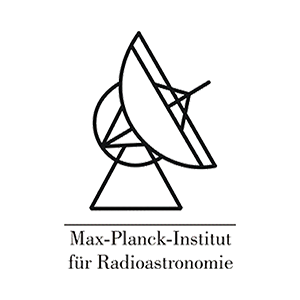I conduct research on extreme regions of the universe and make the invisible visible: black holes.
Professional Profile
Scientific Member of the Max Planck Society
Director at the Max Planck Institute for Radio Astronomy
Expert for Radio Astronomy and Very Long Baseline Interferometry
Researches galaxies and quasars using a global network of radio telescopes
Shapes international cooperation in science and technology
Initiator of the global Event Horizon Telescope Collaboration, which produced the first image of a black hole in 2019
Press and interview contact:
For interviews, background conversation and short notice commentary, please contact azensus@mpifr-bonn.mpg.de.
Biography
Anton Zensus, astrophysicist and director at the Max Planck Institute for Radio Astronomy in Bonn, has been shaping radio astronomy for over three decades. After completing his doctorate in Münster, he conducted research at renowned US institutions, including the California Institute of Technology and the National Radio Astronomy Observatory. He has headed the Bonn institute since 1997. There, together with his team and international partners, he has been instrumental in advancing Very Long Baseline Interferometry (VLBI) – a technology that connects telescopes worldwide into a global observation network.
Building on this work, Anton Zensus became known worldwide for his leading role in capturing the first image of a black hole. This milestone was made possible by technological precision, scientific excellence, and global cooperation. For his contributions, he has received the Breakthrough Prize for Fundamental Physics (2019, together with the Event Horizon Telescope Team), the Tycho Brahe Medal (2023), and the Karl Schwarzschild Medal (2024), among other awards.
Research Focus
Anton Zensus explores the structure of the universe—from supermassive black holes to the cores of distant galaxies. Using Very Long Baseline Interferometry (VLBI), he and his team connect radio telescopes around the world to make the invisible visible: Black Holes. This work requires precision, perseverance, and the willingness to push scientific boundaries.
At present, Zensus leads the M2FINDERS project, which investigates how relativistic jets form in the centers of galaxies with supermassive black holes. The European Research Council supports this research through an Advanced Investigator Grant.
International Cooperations
Science builds bridges – between people, institutions and cultures.
For more than 30 years, Anton Zensus has built and strengthened scientific partnerships across Europe, the United States, China, and beyond. In doing so, he links research across systems and disciplines and fosters collaborations that transcend geographical and institutional boundaries. Today, he promotes projects that unite scientific excellence with technological innovation and industrial expertise.
Advisory Work
Taking scientific responsibility means shaping research, strengthening networks, and building bridges between institutions. Selected current advisory mandates:
- Advisor to the President of the Max Planck Society for Transatlantic Scientific Cooperation
- Physics Review Board of the German Research Foundation (DFG)
- Scientific Coordinator of the RadioNet Consortium (EU)
- Science Advisory Board, the University of Bonn (Germany)
- Astronomy Committee of Associated Universities Inc. (USA)
- Next Generation Very Large Array (ngVLA) Science Advisory Committee (USA)
- Science Advisory Board, Shanghai Astronomical Observatory (China)
- Kuratorium Deutsches Museum
Speaking & Mentoring
Science thrives on exchange—across borders and generations. Insights and experiences reveal their value only when they are shared.
In public lectures, keynotes, and discussions, Anton Zensus brings the fascination of research to life and illustrates why it matters for society.
As a mentor, systemic consultant, and sparring partner, he supports young talents and C-level executives in identifying their strengths and developing new paths for their professional growth. Contact: For speaking engagements or to request an initial consultation on systemic supervision, please contact azensus@antonzensus.de.
Honors & Distinctions
Major individual awards:
Karl Schwarzschild Medal 2024 – highest German prize for astrophysics
Tycho Brahe Medal 2023 – highest European award for observational astronomy
European Research Council Advanced Grant 2021 – most competitive European research grant
Max Planck Forschungspreis für Internationale Kooperation 1999
Alexander von Humboldt Forschungspreis 1994
Awards to the EHT Collaboration:
Breakthrough Prize for Fundamental Physics 2019; Frontiers of Science Award 2025; Einstein Medal of the Swiss Albert Einstein Society 2019; Group Achievement Award of the Royal Society 2021; Bruno Rossi Group Award of the American Astronomical Society 2020; NSF Diamond Achievement Award 2019.
Additional honors:
Golden Medal of the Institute of Applied Astronomy, St. Petersburg 2013
RadioAstron Bronze Medal 2012
Studienstiftung des Deutschen Volkes 1982-84
Professional Memberships
Atlantik-Brücke
International Astronomical Union
European Astronomical Society
American Astronomical Society
Deutsche Physikalische Gesellschaft
Astronomische Gesellschaft

